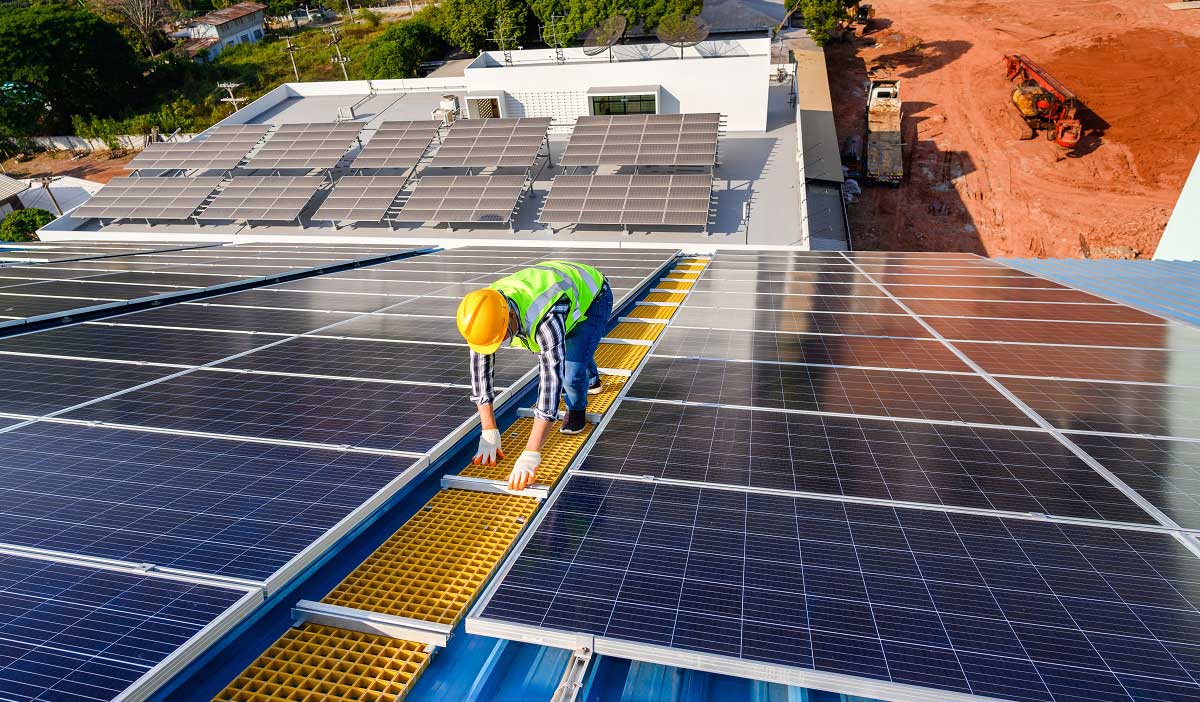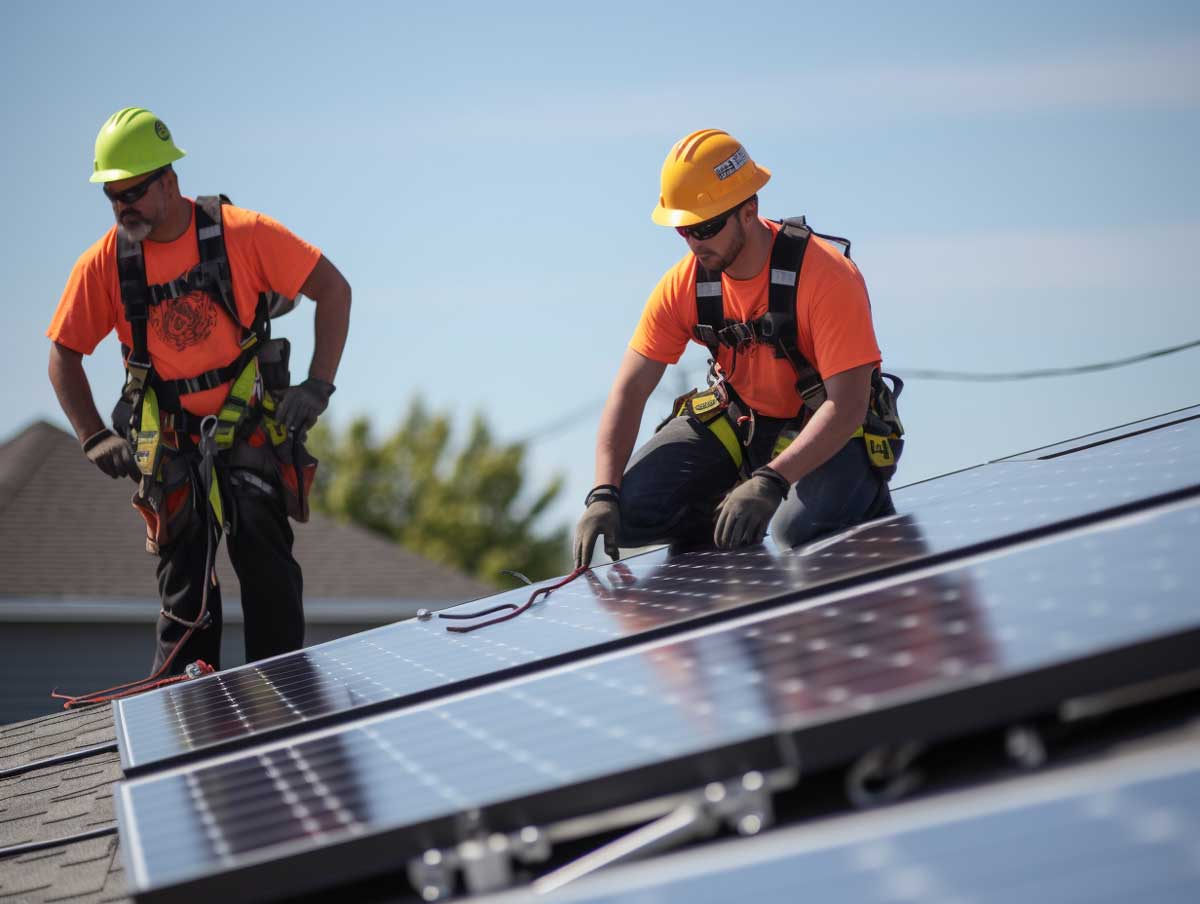The federal solar tax credit, officially known as the residential clean energy credit, is a form of investment tax credit offered by the U.S. government. This credit is an incentive to promote investment in solar power and other types of renewable energy projects. It allows homeowners to recoup a significant portion of the cost of installing a solar power system. The question most people have about solar tax credit is, “Is solar tax credit refundable?”.
Discover the intricacies of the U.S. Solar Tax Credit in our comprehensive guide. Learn about eligibility requirements, how to claim it, its relation with other incentives, and whether this credit is refundable.
Understanding Solar Tax Credit
The solar tax credit can cover a variety of expenses related to installing a solar power system, including equipment and installation costs. However, it does not apply to structural work done solely to support solar panels. The tax credit's percentage varies based on when the solar power system was activated. For 2022 and 2023, homeowners can claim up to 30% of the cost of their solar power system.
Eligibility For The Solar Tax Credit
Various renewable energy projects can qualify for the residential clean energy credit. These include:
-
Solar electric systems
-
Solar water heaters
-
Small wind energy projects
-
Biomass fuel projects
-
Fuel cell projects
-
Geothermal heat pumps
However, not every project in these categories will qualify for the federal aid. There are specific guidelines for qualification. For instance, the project must be installed in your U.S. home, and you must own the system. Moreover, the system must have been placed into service in 2017 or later. Importantly, not every cost related to installing a solar energy project is covered by the program. For instance, the costs of structural work done solely to support the system are not included.
Claiming The Solar Tax Credit
To claim the solar tax credit, homeowners need to fill out IRS Form 5695, which covers residential energy projects. When filling out this form, you will need to provide details about your tax situation, which you can gather from other documents, including Form 1040. Additionally, you will need to provide information about the cost of your energy project and a certification from the equipment manufacturer stating that the products qualify for the credit.
Is Solar Tax Credit Refundable?
So, is solar tax credit refundable? In short, no. The solar tax credit is nonrefundable. This means that the amount of your credit can’t exceed the total amount you owe in taxes. If the credit reduces your overall tax bill below zero, the IRS will not issue a refund for the difference. However, if you can't use the full credit in the year you install your solar power system, you can carry forward any unused portion of your tax credit to reduce your taxes in the following year.
Combining Solar Tax Credit With Other Incentives
The federal solar tax credit can be combined with other clean energy incentives, although these may reduce the overall cost of your system for tax purposes, leading to a smaller credit. State-level solar incentives can vary widely, but getting a state tax break or rebate generally won’t limit your ability to get solar credits from the IRS. Conversely, incentives paid out by utility providers may reduce the overall cost used to calculate your credit unless you counted that incentive as income for federal tax purposes.
The federal solar tax credit is a powerful tool for homeowners investing in solar power, offering significant savings and promoting the use of clean energy. By understanding how this credit works and how to claim it, homeowners can make the most of this incentive and contribute to a more sustainable future.
Is Solar Tax Credit Refundable?
The Solar Tax Credit, officially known as the Residential Clean Energy Credit, is a powerful financial incentive for homeowners investing in renewable energy solutions. However, it's vital to understand its specifics, including whether or not it's refundable.
Understanding The Solar Tax Credit
The U.S. government offers a Solar Tax Credit to encourage homeowners to invest in solar power systems. This credit can help recoup up to 30% of the installation costs of a solar power system. President Joe Biden extended these solar tax credits through 2034 as part of the Inflation Reduction Act in 2022.
The Solar Tax Credit applies not only to solar panels but also other types of renewable energy projects such as solar electric systems, solar water heaters, small wind energy systems, biomass fuel projects, fuel cell projects, and geothermal heat pumps.
Qualifying For The Solar Tax Credit
To qualify for the Solar Tax Credit, the project must be in your U.S. home, which can include a house, houseboat, mobile home, cooperative apartment, condominium, or a manufactured home. Notably, for solar, wind, and geothermal projects, the property doesn't have to be your primary residence.
Furthermore, you must own the system, and the project must have been placed in service in 2017 or later. Costs covered by the program include installation, but not work done solely for structural support of the system.
Claiming The Solar Tax Credit
When filing a tax return, you need to fill out IRS Form 5695 to claim the Solar Tax Credit. This form requires information about your tax situation and details about the cost of your energy project, as well as a certification from the equipment manufacturer that the products qualify for the credit.
Solar Tax Credit And Other Incentives
The Solar Tax Credit can be combined with state incentives and utility-funded programs that support clean energy1. State-level solar incentives vary widely, so it's wise to understand your state's specific rules before making any decisions.
However, if you receive incentives from your utility provider, these may reduce the overall cost of your system for tax purposes and could result in a smaller credit, unless you counted that incentive as income for federal tax purposes.
Refundability Of The Solar Tax Credit
Now, the main question remains: Is Solar Tax Credit refundable? The answer is no. The Solar Tax Credit can save you money on your tax bill, but the amount of your credit can't exceed the total amount you owe. If the credit reduces your overall tax bill to below zero, the IRS will not cut you a check for the difference. However, you can "carry forward" any unused portion of your tax credit and use it to reduce your taxes in the following year. The Solar Tax Credit is a beneficial incentive for homeowners aiming to transition to renewable energy sources. Although it's not refundable, it can significantly reduce your tax bill and facilitate your investment in a sustainable future.
Learn more about the Solar Tax Credit and how to take advantage of it in 2023 by visiting Gov Relations and exploring our comprehensive resources and guides.







